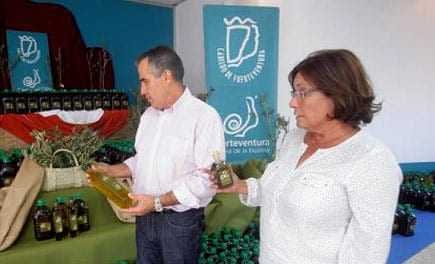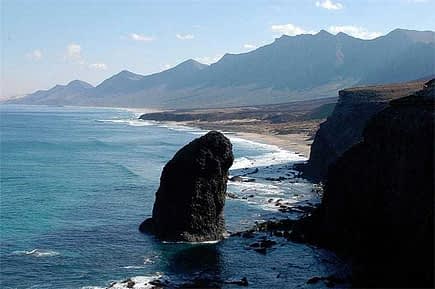Although better known as a summer tourist destination, the island of Fuerteventura, one of the Spanish Canary Islands, is making its mark on the extra virgin olive oil market.
The council of Fuerteventura has announced it expects to double production of extra virgin olive oil by the end of the 2012 season, compared with the previous year, due to increased maturation of trees and lower temperatures resulting in a good flowering season.
The 2011 harvest saw a vast increase in production on previous years with 40,000 kilos of olives processed and 6,500 liters of extra virgin quality olive oil produced. However, at the midpoint of 2012, 37,000 kilos had already been sent for milling, suggesting the probability of exceeding the 2011 total substantially.
The island’s olive harvest began at the end of August, with the ripening of the Arbequina varietal, while other cultivars, such as Picual, Hojiblanca and Verdial will mature in the coming months.
Despite these positive predictions, the olive oil industry in Fuerteventura is still in its early days, with the Cabildo (municipal) mill opening for the first time in 2006, and operating with accreditaton for health and quality since 2008. However, despite the late start, production has increased sixfold since its inception and looks set to continue on this path of success.
During 2011 a total of 55 olive farmers made use of the public mill, which is offered free of charge. This was an increase from about a dozen in the first few years of operation, when just 1,000 liters of olive oil were produced. Subsequently, there are efforts by individual farmers and groups to purchase new mills with the hope of eventually having three additional operating mills and a variety of different local labels
The future for olive oil production in the region looks bright, with island Minister of Agriculture, Rita Diaz, explaining that the soil salinity and climate of Fuerteventura were well suited to olive tree cultivation, and that there was a strong commitment being made to organic farming in the region, which is hoped to increase quality even further.

Cabildo of Fuerteventura President Mario Cabrera and the Minister of Agriculture, Livestock and Fisheries, Rita Diaz with locally produced olive oil. (ACFI Press photo)
According to Ms. Diaz, there is also the potential for higher returns in the future, with distribution of olive trees around the island from the Cabildo farm, in addition to the increased cultivation of local varietals such as “La Verdial Canaria.” The initiative also aims to create diversification of other agricultural products on the island, with the olive trees providing a wind block for many other agricultural products.
Whilst the islands oil is not yet marketed on a large scale, it is a source of attractive growth potential for local farmers and has provided the local market with a high quality product.









